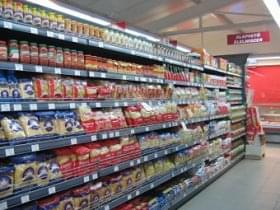New EU-policy on additives
Food additives are substances added intentionally to foodstuffs to perform certain technological functions, for example to colour, to sweeten or to preserve.
Food additives are defined in Community legislation as “any substance not normally consumed as a food in itself and not normally used as a characteristic ingredient of food whether or not it has nutritive value, the intentional addition of which to food for a technological purpose … results … in it or its by-products becoming directly or indirectly a component of such foods.” (for full definition see: Article 1(2) of Directive 89/107/EEC)
Food additives are authorised at EU level for all the fifteen Member States, as well as for Norway and Iceland.
The Community legislation on food additives is based on the principle that only those additives that are explicitly authorised may be used. Most food additives may only be used in limited quantities in certain foodstuffs. If no quantitative limits are foreseen for the use of a food additive, it must be used according to good manufacturing practice, i.e. only as much as necessary to achieve the desired technological effect.
Food additives may only be authorised if:
there is a technological need for their use,
they do not mislead the consumer,
they present no hazard to the health of the consumer.
Prior to their authorisation, food additives are evaluated for their safety by the Scientific Committee on Food, an expert panel that advises the European Commission in questions relating to food.
Related news
Related news
The Christmas season is starting earlier and earlier: value for money is the key
This year, 40 percent of Hungarians brought their Christmas shopping…
Read more >They want it to be premium, but also sustainable – expectations of the youngest generation
GlobalData’s latest report, “Demographics in Retail and Apparel” – which…
Read more >In six months, consumers donated 100 million forints to charitable causes through the mandatory redemption system
Through the deposit bottle return system, which began six months…
Read more >





